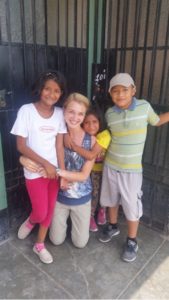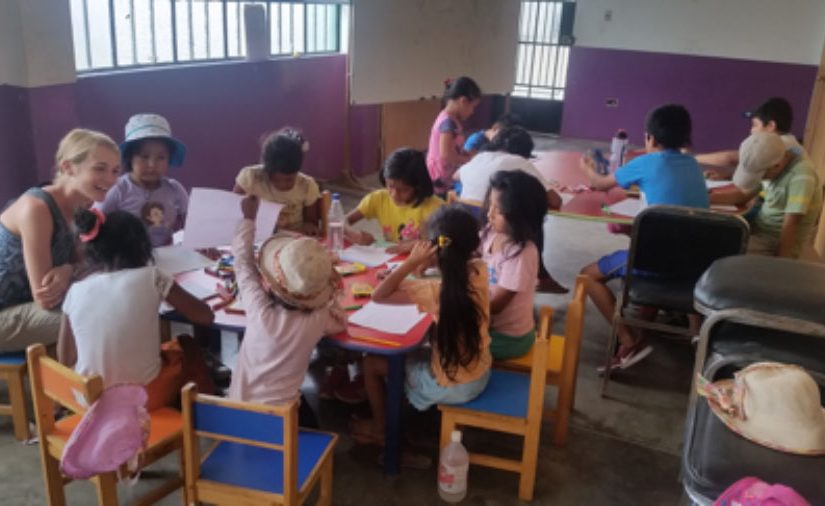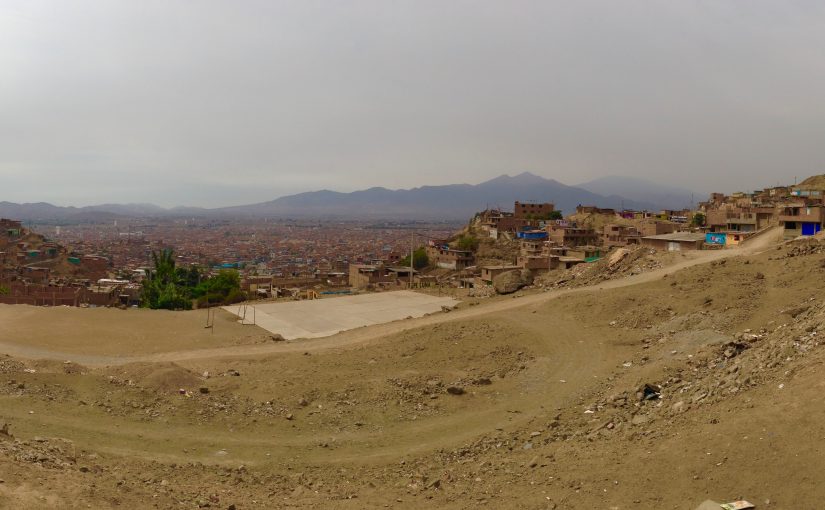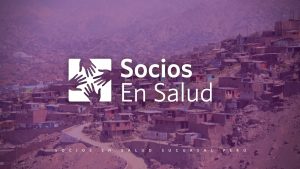Dear Members of the Class of 1957,
I am in my last week here in Peru! How the time has flown by! I’ll share a story and some thoughts that have been on my mind as my time here rapidly draws to a close.
One morning, I set out with Stephani, one of the psychologists in the mental health team of Socios en Salud. When I started working here, there were five members of the team, but organizational budget cuts struck in my sixth week here cutting the team down to two: a harsh reality of the world of limited funding and seemingly unlimited need. We clamber out of the mototaxi, coated in sweat that the dust from the street promptly clung to, as we began our ascent up the mountain to a patient home. The role of the mental health team at Socios is to visit patients undergoing treatment for tuberculosis to evaluate their mental health status to ensure that they adhere to their treatment regimen. In the past, Socios has found that the patients who experience the most severe depression are most likely to develop feelings of hopelessness and abandon their drug regimens, leaving them at risk for Multi-Drug Resistant (MDR) or Extremely Drug Resistant (XDR) tuberculosis.
Stephani makes a small exclamation and points up ahead where a frail man is waving from a rooftop. We set off in that direction. He meets us at the door, his bony hands limply clasping ours in greeting. His clothes hang off of his body, as though he is nothing more than a temporary coat hanger, a life so very mortal and fleeting. His eyes sit deep in his skull, sunken into shadows of pain and exhaustion. We sit with him in his living room, separated from the rest of the apartment by a bed sheet. As his children stir from their sleep in the beds behind the curtain, I catch glimpses of them peering out at us with inquisitive sparkling eyes.
He begins to tell us his story and I listen while watching the children. His eldest son comes in from playing soccer and ducks behind the curtain. He is no more than twelve years old. I watch as he lifts his screaming baby sister from the bed, her shaggy hair standing up in every direction, and tugs off her sagging diaper, rooting through a pile of clothes and extracting a pair of underwear that he helps her into. She reaches for a bottle of yogurt on the dresser. He takes it from her and opens it, sniffing cautiously, then tossing it on the counter and handing her a banana in instead. A few minutes later, the little girl ducks out from behind the curtain and sidles along the wall, grabbing her fathers arm and finally clambering up into his lap, staring at us while her mouth works on the banana.
The man tells us about the darkest moment, when he held his son’s hand in the hospital and told him to be brave. Told him that he was sorry. I see the son in the other room frozen, listening, bent over clutching the counter. Tears are streaming down the father’s face but he brushes them away as his daughter turns to look up at him so she doesn’t see.
“I have hope now,” he says, “hope that I will live. Hope that I will watch my children grow up. But what father have I been for them? I can’t support them. I can’t give them a good life. How long will it be before I am strong enough to go back to construction? Their mother hates me. She works so that they can eat. She wants to be rid of me, but I can’t leave them. I love my children. I love them more than anything in the world. They are why I’m still here.”

There were many home visits I was able to accompany our team on during my time here, but this one was especially powerful for me. It is just one example of the devastation that tuberculosis leaves in its wake and it was a powerful reminder for me about why I am here, what I am fighting for – not just in my internship, but with my life.
Moving forward from this experience, memories like that will haunt me, the sorrow in his face seared into my memory. His children deserve a future. It’s not just illness we are fighting; it’s poverty and the structures in place that perpetuate it. Despite how far Socios en Salud and Partners in Health have already come in eliminating tuberculosis, there is still so much further to go. My time here has reinvigorated my desire to chase these kinds of goals, to reevaluate the “impossible” challenges and “unbreakable” barriers.
From a more practical standpoint, my internship at Socios has revealed to me many areas in which I still need to grow and gain experience. For example, I now know that I want to take more public policy classes to flush out the knowledge that I gained experientially here. Furthermore, I have also realized that in order to be most effective in these kinds of global settings, I need to gain more quantitative analytical skills. I also hope that I will be able to take some of what I learned here about to mental health into my senior honors thesis, particularly with regards to mental health stigma. I am also gratefully able to share that during my time here, I was accepted into Geisel School of Medicine, so I sincerely hope that I am able to continue working with Dickey in the future to pursue these goals.
This internship has shaped my life. Not just my career goals and my Dartmouth experience, but my person. I emerge from this crucible of the challenges a more refined version of exactly who I am and a clear vision of who I want to become. I thank you again, from the bottom of my heart, for helping to make this opportunity a reality.
Yours truly,
Kennedy





